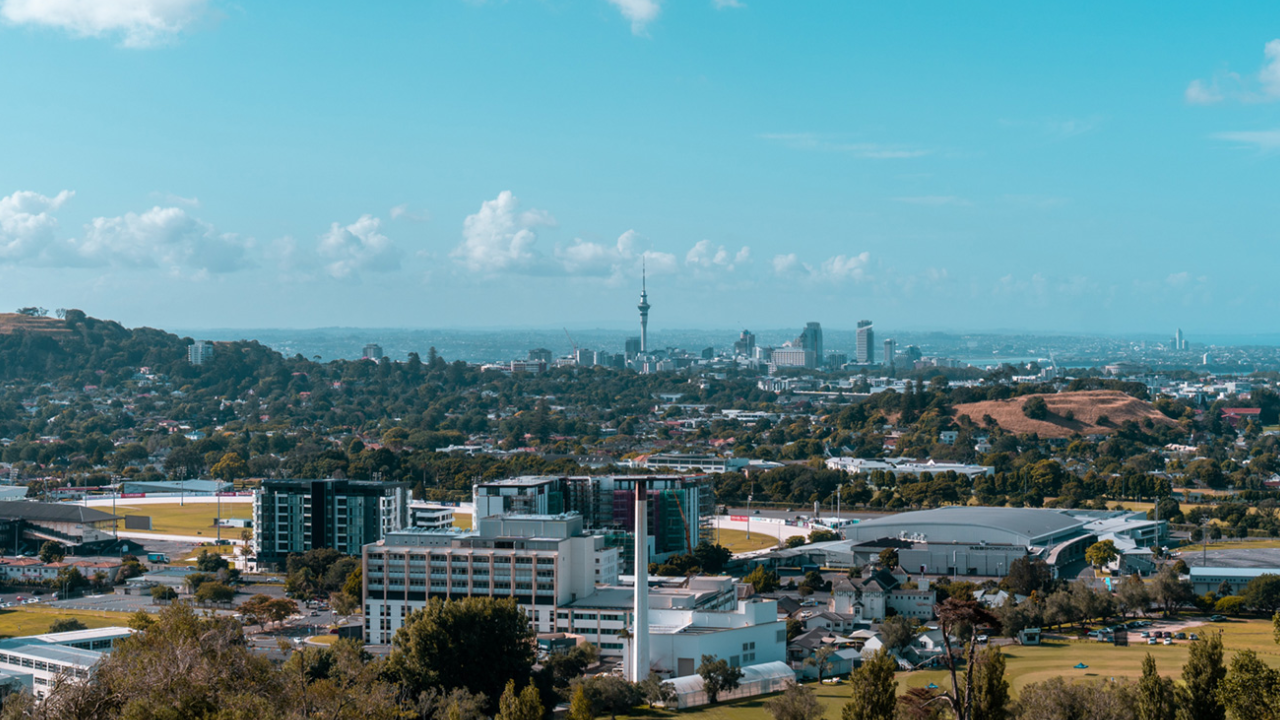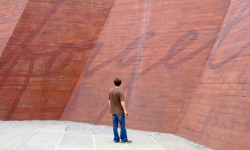
As a follow on from last weeks opinion piece: Vaccinations and the local church: Seven views on the current situation, Alan Jamieson, General Director of NZBMS shares a call to action.
Thank you Tāmaki-Makaurau! It’s hard for me to say that as a fifth-generation mainlander; but it is necessary and deserved. You are doing the hard work for us all right now. Your 65+ days spent largely inside are holding back the spread of Delta and buying precious time for the rest of us to prepare for the next phase. We know it is costing you big time and we appreciate it.
You’re leading the way for us, Auckland. It’s clear from what’s happening where you are, that the nation’s strategy has changed. Where once we were carefully counting cases and aiming for elimination, we are now readying ourselves for what will most likely be ‘living with it’. The counting of cases has quickly shifted to the counting of vaccinations. This has inevitably caused tension, as we watch the slow inflation of these numbers with bated breath.
Of course, some cannot get the vaccine, because of age or health complications, and others won’t through personal conviction. However, the country’s goal of the highest vaccination rate possible remains. The new target is lessening the spread, lessening the toll of sickness, and lessening the load on our hospitals. As we enter this new phase, I want to say thank you to those who have been vaccinated and thank you to those, who through research and conversations, have chosen not to be vaccinated right now.
We are reminded here of key values of personal choice, of freedom of rights, limitation of government powers and even of freedom to worship. We are being called to ensure this vaccine is as safe and as un-sinister as we are being told. Those of you, that I have met, who have raised these concerns are sincere, thoughtful, and caring people. Many are deeply committed Christians. Nobody deserves the criticism or labels that I have seen used in social media.
I respect and have listened to those who choose not to be vaccinated, and I acknowledge the important values this choice is founded on. But I would like us to turn our attention to a value higher than that of personal or religious freedom, or limitation of government powers and even the possible side effects of vaccination. That higher, and strongly biblical, value is protection and care of our weak neighbour.
The word neighbour for me includes the people I pass on the street, the people I work and live alongside, the people I encounter regularly and not-so-regularly. Perhaps choosing not to be vaccinated can be likened to going tramping without any survival gear. When the weather turns nasty, the tramper with no survival gear can be in real trouble. And if that tramper is a parent tramping with young children, or a teacher tramping with a class of students, the choice not to take survival gear becomes particularly dangerous. Arguably irresponsible. Standing up for personal choice and freedom of conviction is absolutely valid, but right now, standing up for our responsibilities and duties of care is the higher value. All of that to say, this new phase of ‘living with it’, requires more of us.
This next phase allows us to participate in more substantial ways than just being locked in at home or rolling our sleeve up. Christians, especially community leaders, have the opportunity to be salt and light in the world. We have the opportunity to take action:
- As borders begin to open and the virus moves, people will get sick. Some vaccinated, and many unvaccinated, people will need hospital care. Based on what is happening in Singapore, it seems many will die. Fear and anxiety will become widespread. How can churches, homegroups, and Christian leaders provide care for the anxious? Safe spaces for the scared? Avenues for prayer to those who need it most? These will likely include elderly people living alone, socially isolated people, and households with immuno-compromised members. When Christchurch was rocked by 18 months of earthquakes; speaking to people’s fear, naming anxiety, reading passages that pointed to God’s presence and hope, being honest about the struggle ahead, offering ways people could practically and personally contribute. These were some of the ways we responded with action and love.
- With sick people isolating at home or in hospital, practical care needs will increase—how might we give practical help to these people? How could churches support overworked medical staff and primary healthcare practitioners? How might we support solo parents who contract the virus? If we are not sick, then we can be Christ’s disciples in action by caring for those who are.
- As we enter a more demanding phase in Aotearoa, lest we forget the rest of the world. Let us be especially mindful of poor communities, isolated areas, and those without access to health care. Stay informed of global needs, make a habit of praying for specific people and places globally, be wary of unscientific or unfounded information, and be generous in supporting specific global needs.
- And we must heal the rift between the vaccinated and unvaccinated. As the virus moves around the country, emotions around vaccination status will only heighten. How do Christian leaders help us to disagree in respect? How do we learn to listen to one another as Christ’s whānau while seeing the divide that matters is between the sick and the un-sick, not the vaccinated and unvaccinated? In listening well and holding compassion, we are creating spaces in our families, workplaces and churches where opposition voices can come together. Where cancel culture and culture wars are not accentuated. We desperately need to do the hard mahi here. As churches and Christians who want to speak life into the emerging culture, we need to model safe places of discussion, respect, and dialogue. And not just on the issue of vaccination; to model a way for equally divisive issues like LGBTQI, the MeToo movement and ethnic conversations sparked by the Black Lives Matter movement. There will always be cultural divides, but our place is to be the church in that context, built on Jesus the cornerstone. This reminds us that whether Jew or Gentile, male or female, vaccinated or unvaccinated—we are part of one body.
So, once again I say thank you to Auckland for giving us time to prepare for this next phase. There is certainly work ahead. Nāu te rourou, nāku te rourou, ka ora ai te iwi: With your food basket, and my food basket, the people will thrive.
Contributor: Alan Jamieson, General Director of New Zealand Baptist Missionary Society
Stay up to date with the global work of NZBMS through their weekly updates.
Red-orange-green light: a pastor, a church and unity in Christ
Tim Palmer, Senior Pastor, Franklin Baptist Church shares his journey in a local church as they seek to navigate the vaccination discussion, as they listen and care for each other, as they walk toward unity in Christ. Read here...


